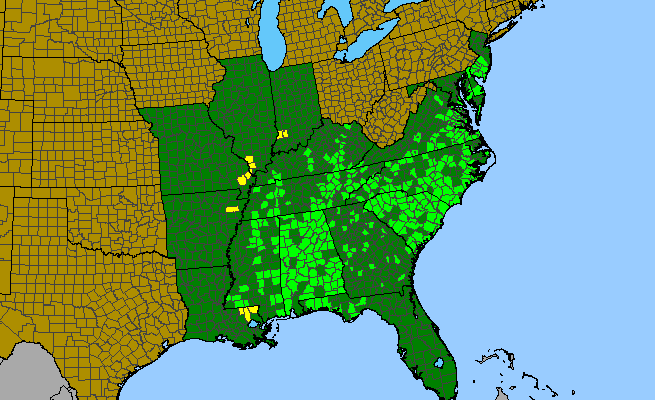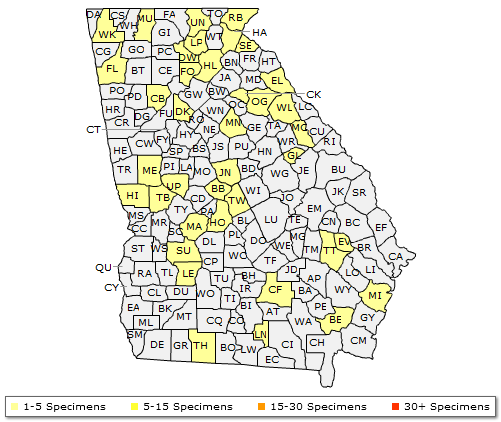
|

|

|

|

|
JUGLANDACEAE - - Walnut Family

|

|

|

|

|
Sand or Pale Hickory (Carya pallida) is a medium to large hickory tree. The leaves have 7 to 9 leaflets; undersides of leaflets with dense, silvery-tan scales (resin dots), giving it the pale appearance; twigs brown / dark gray with silvery scales, buds with bronze and silvery scales; fruit with medium thickness husk; bark lightly to heavily furrowed.
Dry sandy or rocky forests and woodlands. In our area (northwest Georgia), generally confined to dry ridge top forests.
Partial Habitat information from:
Weakley, Alan S., Flora of the Southern and Mid-Atlantic States, Working Draft of 21 May 2015.

The native range of Carya pallida (Sand or Pale Hickory)
Kartesz, J.T., The Biota of North America Program (BONAP). 2015. North American Plant Atlas. (http://bonap.net/napa). Chapel Hill, N.C. [maps generated from Kartesz, J.T. 2015. Floristic Synthesis of North America, Version 1.0. Biota of North America Program (BONAP). (in press)].

The Georgia range of Carya pallida (Sand or Pale Hickory)
Zomlefer, W.B., J.R. Carter, & D.E. Giannasi. 2014 (and ongoing). The Atlas of Georgia Plants. University of Georgia Herbarium (Athens, Georgia) and Valdosta State University Herbarium (Valdosta, Georgia). Available at: http://www.georgiaherbaria.org/.
Guide to the Trees of North Georgia and Adjacent States
Web Page © Richard Ware
send Richard an E-mail